A cardiovascular sonographer aids physicians in the diagnosis and treatment of disorders affecting the cardiovascular system. Using ultrasound and other technology, sonographers collect and evaluate images of the heart, the heart valves and related blood vessels.
Cardiovascular sonographers also evaluate, analyze and record information related to blood vessel anatomy and blood flow of the vessels.
Cardiovascular sonographers work closely with patients. People who choose this career find it rewarding because they are helping others while making a good living doing it.
According to the Bureau of Labor Statistics (BLS), diagnostic medical sonographers (including cardiovascular sonographers, cardiovascular technologists/technicians and vascular technologists) will have a much-faster-than-average job growth rate of 11 percent from 2023 to 2033.
Salary ranges vary by state, experience level and type of healthcare facility. The BLS reported that the national median salary in May 2023 for diagnostic medical sonographers (including cardiovascular sonographers, cardiovascular technologists/technicians and vascular technologists) was about $80,850 annually.
Want to learn more? Watch our most recent Virtual Information Session.



